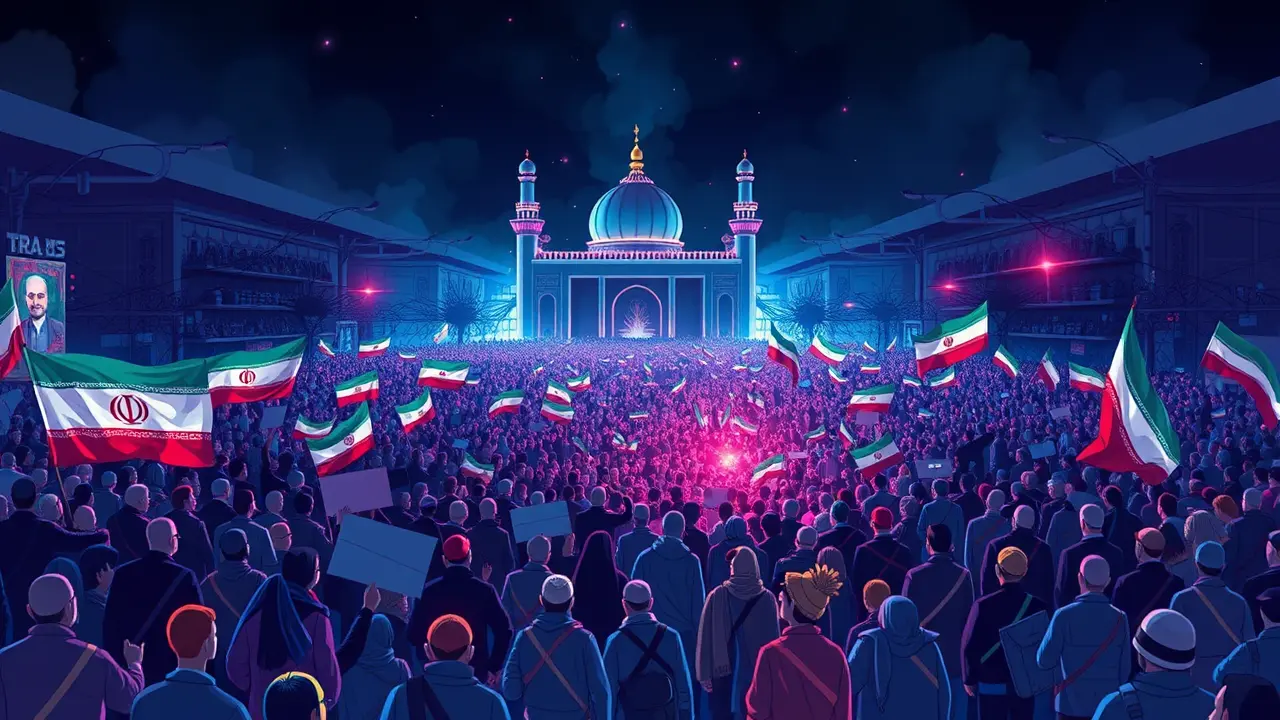
PoliticsdiplomacyEmbassy and Consulate Affairs
Mass anti-US rallies in Tehran mark embassy takeover anniversary.
EM
Emma Wilson
7 hours ago7 min read6 comments
The streets of Tehran convulsed once more, not with the quiet hum of daily life, but with the familiar, thunderous roar of a decades-old grievance. On Tuesday, vast crowds, a sea of fervent faces and fluttering banners, gathered in the Iranian capital, their collective voice a powerful echo from 1979.This was the 46th anniversary of the seizure of the U. S.embassy, an event that forever fractured U. S.-Iran relations and cemented a narrative of defiance at the core of the Islamic Republic's identity. To understand these rallies is to look beyond the headlines of chanting students and burning flags; it is to dive into the deep, stagnant well of mutual distrust that has poisoned diplomacy for nearly half a century.The embassy takeover itself, which began on November 4th of that year, was a direct, visceral response to the Carter administration's decision to admit the deposed Shah into the United States for medical treatment—an act perceived in revolutionary Iran as a precursor to another American-orchestrated coup, a chilling replay of 1953. For 444 days, the world watched as student militants held 52 American diplomats hostage, a crisis that ultimately cratered a presidency and established a permanent state of animosity.The rallies today, therefore, are not merely a commemoration but a vital piece of political theater, a state-sanctioned ritual designed to reinforce revolutionary values to a new generation and signal unwavering resistance to the West, particularly at a time of heightened regional tensions and stalled negotiations over Iran's nuclear program. Analysts note the participation is often encouraged, and sometimes compulsory for civil servants and students, yet the underlying current of anti-American sentiment remains a potent and genuine force in the Iranian political landscape, a unifying cry that transcends the nation's deep internal divisions.The consequences of this perpetual standoff are felt far beyond Tehran's Freedom Square; they ripple through global oil markets, dictate security postures across the Middle East, and leave diplomats in Vienna and elsewhere grappling with an intractable problem. The chants of 'Death to America' may sound like a relic to Western ears, but in the context of Iran's revolutionary calendar, they are a contemporary statement of principle, a reminder that the foundational trauma of the embassy seizure continues to shape the strategic calculus of a nation that sees itself in a perpetual struggle for sovereignty against a hegemonic power.
#Iran
#United States
#anti-US protests
#embassy takeover
#Tehran
#diplomatic relations
#featured
Stay Informed. Act Smarter.
Get weekly highlights, major headlines, and expert insights — then put your knowledge to work in our live prediction markets.
Related News
© 2025 Outpoll Service LTD. All rights reserved.













